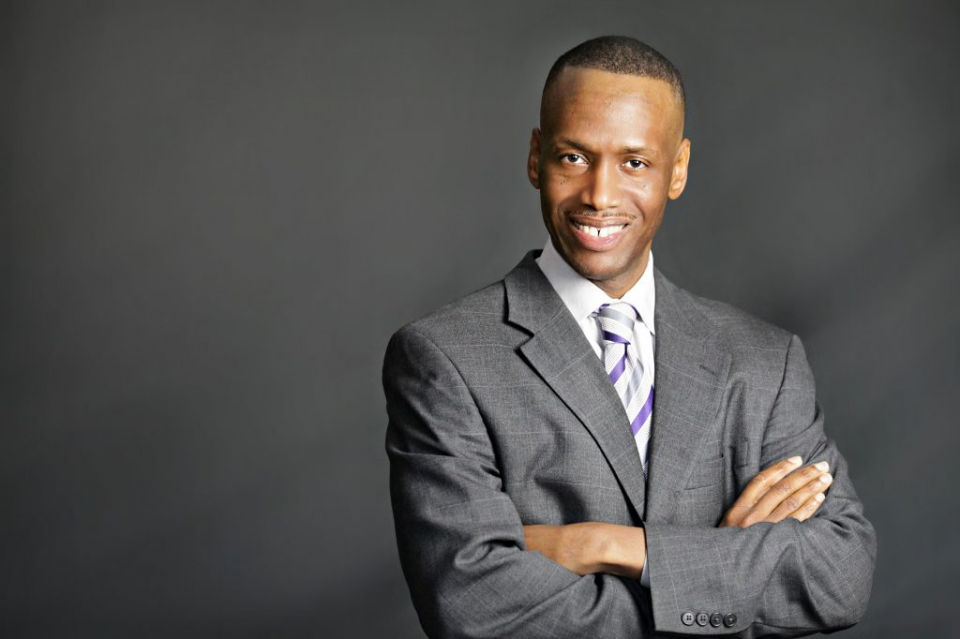
Gavin Samms, Ph.D., is the founder of Genesis Innovation Academy and serves as Head of Schools. He has spent almost 30 years successfully raising the performance of students at every level of education. Samms has a passion for the advancement of education and instilling knowledge and wisdom into students. Samms has been recognized by the New York Times and the Chicago Tribune as well as the Georgia Charter Schools Association for creating programs that have dramatically improved minority student success, some of which have been replicated nationwide. Samms is a change agent who has set out to make a difference in our education system and our students.
Please describe your role as Head of Schools?
I am basically charged with overseeing every aspect of school operations: Academics/Instruction, Culture/Discipline, Finance, Marketing, HR, Facilities, Nutrition, Student Support, Family Engagement, Fund Raising, Technology, etc.
What is your philosophy of education?
Every subject, skill or educational standard should matter for something more than a test. Educators are sometimes snobs about what children should know. But, ultimately educational standards reflect what we think kids should know. It is an opinion, and we sometimes take ourselves too seriously. For instance, the Common Core (despite the politics) is the foundation for most states’ educational standards. It suggests that students should develop “the ability to closely and attentively read texts in a way that will help them understand and enjoy complex works of literature.” That is not why there is an achievement gap. At Genesis, we developed an E5 framework that maps every core subject to an applied content area. We are striving for the day when scholars no longer feel the need to ask, “why should I learn this?”
What inspires you to come to work every day?
Our children. Almost every single one of them are mental, emotional, and spiritual sponges. They soak up everything. And despite the popular narrative, they really do want to learn and to be better people. If we can teach them strategies on how to get better, and ensure they actually learn those strategies, they will listen, grow, and change.
What are the best practices you have found to have a successful career?
Passion is a great source of motivation; it makes you want to put in the time to get better at your craft. The key is having a passion for a process and not an outcome. If you are passionate about money, position, prestige, power, or accomplishment, your sense of success is tied to an uncertain outcome that other people control. The Bible says, “I planted the seed, Apollos watered it, and God caused it to grow.” Passion for the process can sustain the hard work of planting and watering without creating anxiety and fear over the outcome that we can’t really control.
What are the best practices you have found for developing programs for minority students?
What works for me is to have relatively high expectations for students. I say “relatively high” because everybody and their momma says they have high expectations, but they often seem too low to me.
We must adopt standards of excellence that are higher than other communities and make it a requirement for our children to meet them. It cannot be optional. If they want to create their own personal style, let them do it when they grow up, get out of the house, and start taking care of themselves. In the meantime, we can’t make ignorance, disrespect, and showing off a status symbol. Nobody else will create and reinforce excellence for us. In fact, they will do the opposite. Until we demand the higher standard, we will continue to get the poor results we get.
What do you feel is one of the key barriers that hold minorities back from success?
See above for lack of a community-wide standard of excellence. The fact that we can’t agree anymore on what excellence is, will continue to be a problem. Our community used to be able to collectively discipline our children. Any adult could hold you accountable to a behavioral standard and most kids would simply get with the program. In fact, though kids have always done the opposite of what adults wanted, they used to do it in secret, undercover, around the corner, or wherever adults were not. Now? Kids cuss and fight in our presence. Adults do not hold a position of respect in our community anymore. Kids run the show and parents support that. That approach is not sustainable.
What type of programs do you offer for minority students?
Our school is 98% minority, so everything we do is for minority students.
What is one word of advice you can offer to young boys who want to reach your level of success?
I’m not sure how successful I really am, but I think I’m fairly consistent about what I believe. First, I would say don’t measure success by money, position, or career accomplishments. I like money, it is important, and I wish I had more of it. But it can’t be more important than relationships that are grounded in real love; the kind of love that sustains you through life’s inevitable challenges; the kind of love that comes from people who push you to be your best because they believe in you, not because they want something from you; the kind of love that makes you want to sacrifice because that other person has a great heart, not because of what they do for you.
Practically, I would also say to always work as hard as you can, to do the best you can to meet a standard of excellence, even if you are not doing what you ultimately want to. People watch how you handle the small, boring, and unfulfilling tasks that you have to do. The Bible reminds us that you must prove you can manage the little things before somebody will trust you with big, important things.
Lastly, just don’t lower your standard.















